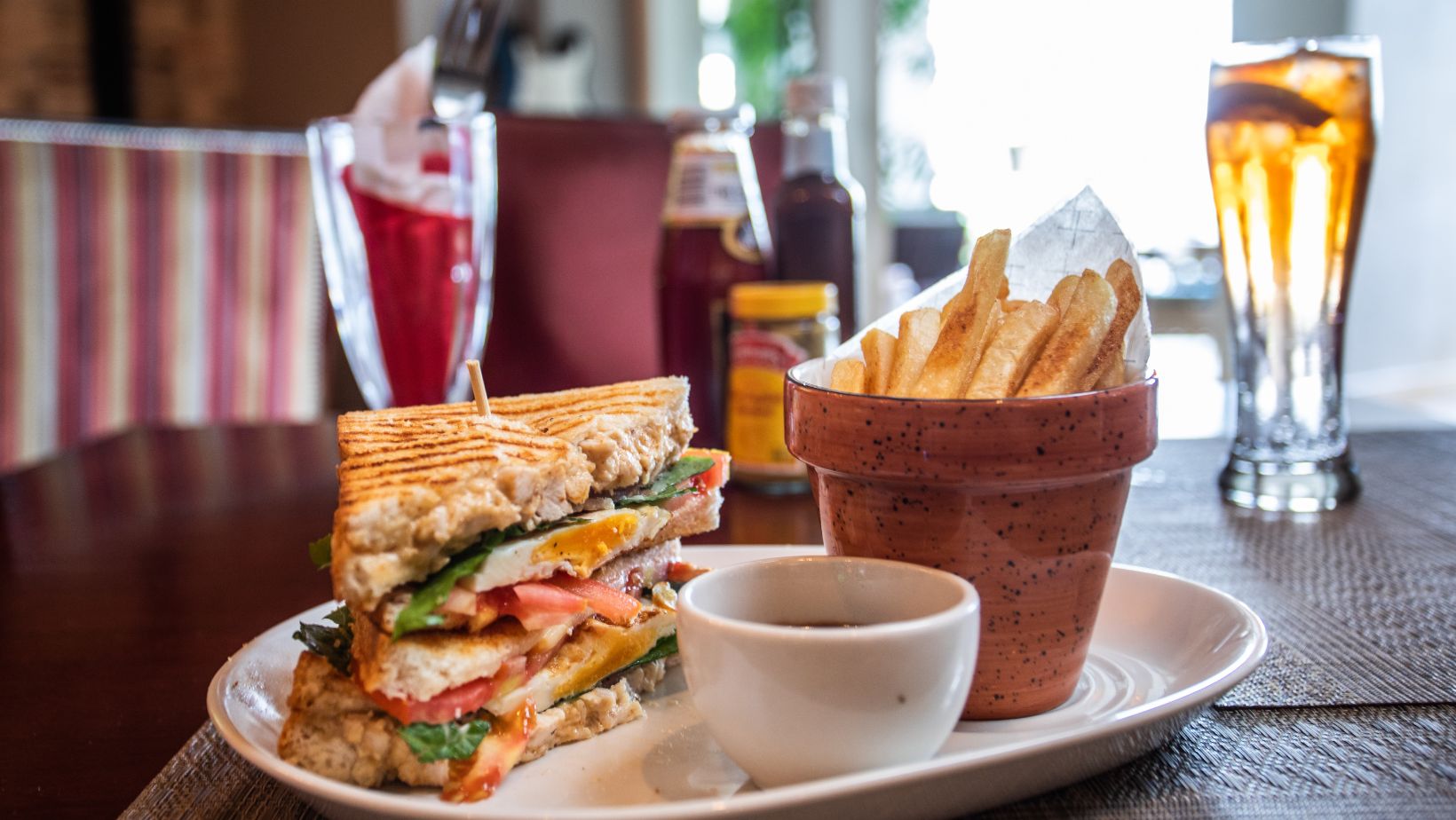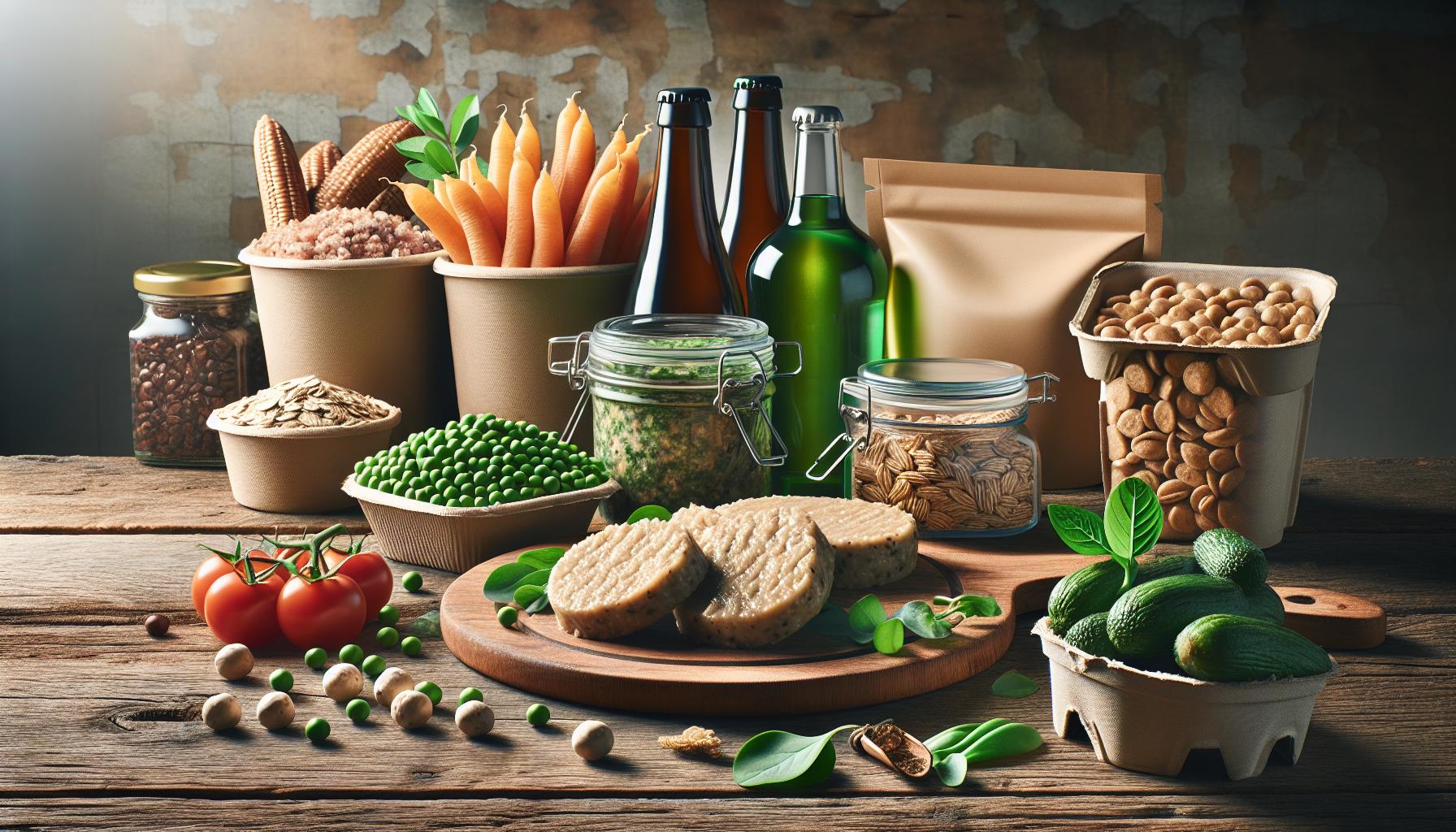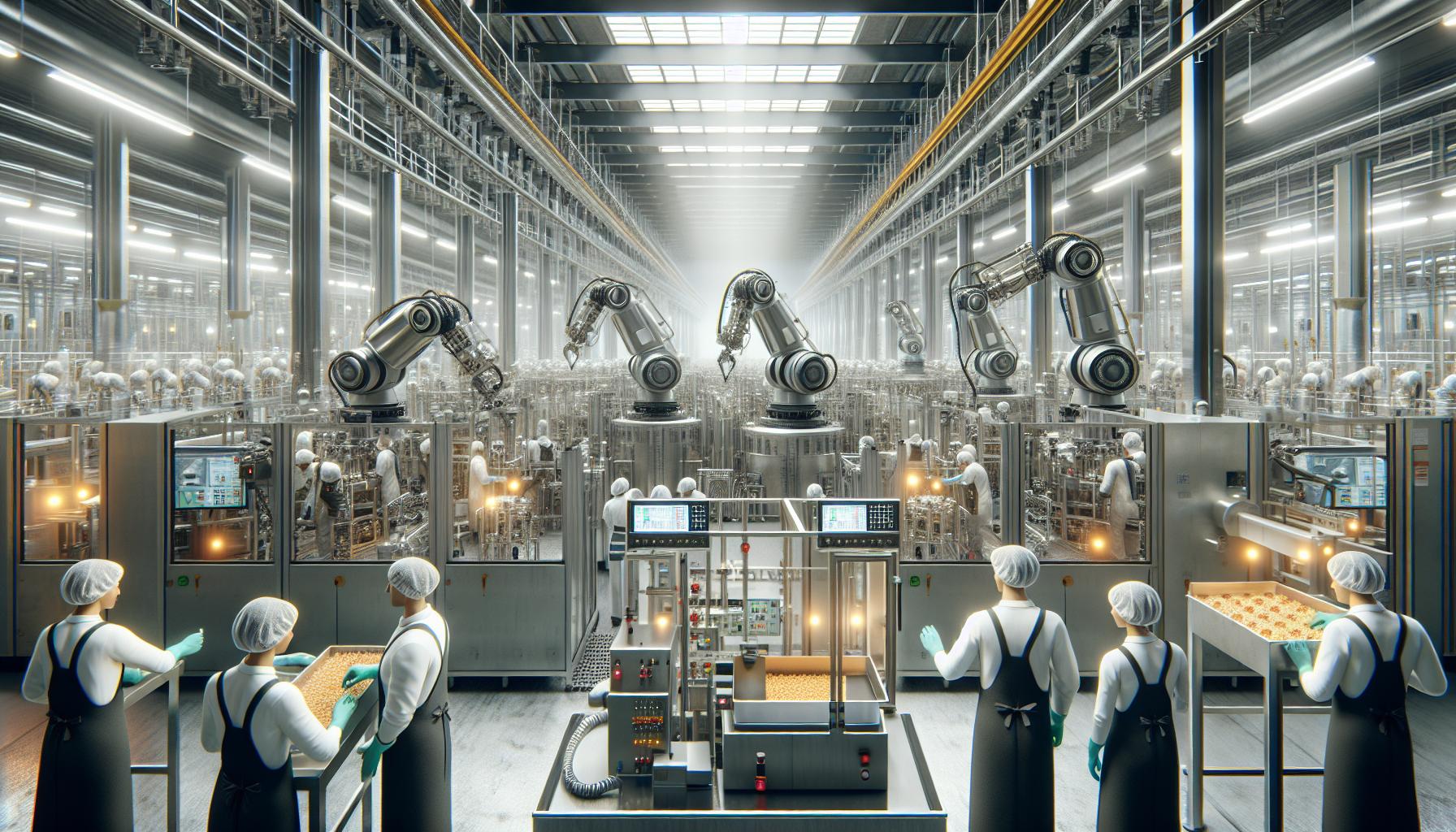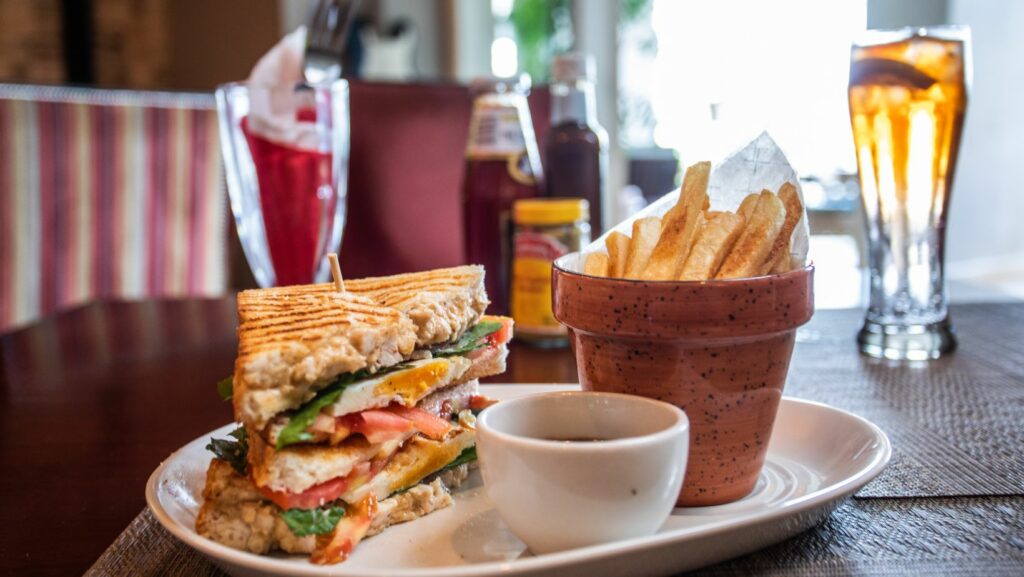 Innovation in Food and Beverage Industry
Innovation in Food and Beverage Industry
- Consumer Preferences: A significant shift towards healthier and sustainable food options is driving innovation in the food and beverage industry.
- Plant-Based Dominance: The market for plant-based alternatives is rapidly growing, projected to reach $162 billion by 2030, reflecting changing dietary habits and environmental concerns.
- Sustainable Packaging: Eco-friendly packaging solutions are becoming essential, as 72% of consumers are willing to pay more for sustainable packaging options.
- Technological Advancements: Automation, robotics, and blockchain technology are enhancing operational efficiency, product quality, and transparency in the supply chain.
- Challenges Ahead: Innovators face regulatory hurdles and supply chain disruptions that require agility and strategic planning to navigate successfully.
- Future Opportunities: Brands prioritizing innovation, sustainability, and transparent practices are set to thrive in the evolving food and beverage landscape.
The food and beverage industry is undergoing a remarkable transformation driven by innovation. As consumer preferences shift towards healthier, sustainable options, companies are racing to develop creative solutions that cater to these demands. From plant-based alternatives to smart packaging, the landscape is evolving rapidly, reshaping how people experience food and drink.
These innovations not only enhance product offerings but also improve efficiency and sustainability across the supply chain. As businesses harness technology and creativity, they’re not just meeting consumer expectations; they’re setting new trends that could define the future of dining and drinking. Understanding these developments is crucial for anyone interested in the dynamic world of food and beverages.
Overview of Innovation in Food and Beverage Industry
The food and beverage industry experiences continuous transformation through various innovations that align with consumer preferences for health, sustainability, and convenience. Current trends emphasize plant-based products, which cater to a growing demand for nutritious alternatives. Companies increasingly invest in research and development to create meat substitutes and dairy alternatives using ingredients like peas, soy, and oats.
Smart packaging technologies play a crucial role in enhancing consumer experience and product preservation. Innovations like QR codes and sensors provide consumers with information about freshness, ingredients, and nutritional content. Such advancements help brands communicate transparency and engage with their customers effectively.
Sustainability remains a central theme in this industry. Innovations designed to minimize waste, such as upcycling and regenerative agriculture practices, allow companies to reduce their environmental impact. These methods focus on utilizing by-products and improving soil health, which contribute to a more sustainable food system.
Automation and digitization also transform operations within the food and beverage sector. Technology enhances production efficiency and supply chain management, enabling businesses to respond quickly to market demands. Data analytics facilitate better decision-making by providing insights into consumer behaviors and preferences.
Overall, the landscape of the food and beverage industry continuously evolves, driven by innovative solutions that prioritize health, sustainability, and operational efficiency. Companies that embrace these changes position themselves to lead in a competitive market while meeting the demands of informed consumers.
Key Trends Shaping the Industry

The food and beverage industry undergoes significant changes due to innovative trends that cater to evolving consumer preferences. Key areas driving this transformation include plant-based alternatives and sustainable packaging solutions.
Plant-Based Alternatives
Plant-based alternatives dominate the market, driven by a demand for healthier options. Companies invest in research and development for meat substitutes and dairy alternatives derived from ingredients like peas, soy, and oats. The global plant-based food market was valued at approximately $29.4 billion in 2021 and is projected to reach $162 billion by 2030. This shift reflects not only a change in dietary habits but also growing environmental concerns, prompting brands to create diverse, flavorful products that appeal to both vegetarians and flexitarians.
Sustainable Packaging Solutions
Sustainable packaging solutions reshape the industry by reducing environmental impact. Consumers increasingly prefer brands that adopt eco-friendly materials and practices. Innovations include biodegradable plastics, compostable materials, and glass packaging, which minimize reliance on single-use plastics. According to a report, 72% of consumers are willing to pay more for sustainable packaging. Many companies now prioritize recyclable and reusable packaging, which enhances brand loyalty and aligns with consumer expectations for sustainability.
Technology’s Role in Innovation

Technological advancements drive innovation in the food and beverage industry, enhancing efficiency and sustainability practices. Key developments in automation, robotics, and blockchain technology play pivotal roles in transforming operations and consumer interactions.
Automation and Robotics
Automation and robotics streamline production processes in the food and beverage sector. Automated systems handle repetitive tasks, such as packing and sorting, which reduces labor costs and minimizes human error. Robotics improves precision in operations, enabling companies to scale production while maintaining quality standards. For example, automated guided vehicles (AGVs) facilitate efficient inventory management in warehouses, ensuring quicker response times and reducing waste. Research indicates that automation can lead to a 30% increase in productivity, allowing businesses to meet growing consumer demands effectively.
Blockchain for Transparency
Blockchain technology enhances transparency across the food supply chain. By providing a decentralized ledger of transactions, businesses can verify the origin and journey of food products, ensuring quality and safety. Consumers gain access to reliable information about sourcing and processing, fostering trust in brands. For instance, companies like Walmart utilize blockchain to trace food items in real time, reducing the time required for recalls from days to mere seconds. Such innovations reinforce accountability and enable companies to respond promptly to safety concerns, significantly impacting consumer confidence in the food and beverage industry.
Challenges Facing Innovators

Innovators in the food and beverage industry face several challenges that can hinder the advancement and implementation of new ideas. Key issues include regulatory hurdles and supply chain disruptions.
Regulatory Hurdles
Regulatory requirements pose significant challenges for food and beverage innovators. Companies must navigate complex regulations regarding food safety, labeling, and health claims. Adhering to the guidelines set by the Food and Drug Administration (FDA) and other regulatory bodies can be time-consuming and costly. Intense scrutiny of health claims for products, particularly in the plant-based sector, can delay product launches. Furthermore, varying regulations across regions complicate market entry for businesses aiming for global expansion. Innovators must invest significant resources in compliance to avoid legal issues, which can limit their agility in responding to consumer trends.
Supply Chain Disruptions
Supply chain disruptions present another major challenge. Factors such as natural disasters, geopolitical tensions, and the ongoing effects of the COVID-19 pandemic have exposed vulnerabilities in food supply chains. These disruptions can lead to shortages of raw materials and increasing costs, impacting production schedules and profitability. In particular, ingredients for plant-based alternatives often rely on specific crops like soy or peas, which can be susceptible to climate variability. Additionally, rising transportation costs and logistical delays can affect timely product delivery. Innovators must develop resilient and flexible supply chains to mitigate these risks and ensure consistent product availability.
Future Outlook
The future of the food and beverage industry centers around continuous innovation and evolving consumer expectations. The rise in environmentally conscious dining presents opportunities for growth in plant-based food markets, projected to expand from $29.4 billion in 2021 to $162 billion by 2030. Companies will likely invest further in sustainable sourcing and ingredient transparency as these aspects become pivotal for brand loyalty.
In smart packaging, advancements such as embedded technology will provide consumers with real-time information about product freshness and sourcing. Consumers expect seamless interaction with products, driving innovation in packaging solutions. Companies adopting these technologies may significantly enhance consumer engagement and trust.
Automation and digitization’s growth will shape operational efficiency, leading to streamlined processes and reduced costs. Companies integrating robotics can expect improved precision, potentially increasing productivity by 30%. As data analytics evolve, businesses will benefit from refined decision-making capabilities based on consumer behavior patterns.
Regulatory challenges may persist, urging innovators to stay agile in compliance and adapt strategies for entering diverse markets. Developing understanding around health claims, especially regarding plant-based products, remains crucial. Collaboratively negotiating these regulations could allow smoother market entry and reduce bottlenecks.
Meanwhile, the focus on resilient supply chains will strengthen. Innovators will explore diversified sourcing strategies and local partnerships to mitigate disruptions while ensuring sustainable practices are at the forefront. These proactive measures can secure competitive advantages in a rapidly changing landscape.
Overall, brands that prioritize innovation, sustainability, and transparency will thrive, aligning their offerings with the discerning preferences of future consumers. The evolving dynamics present a landscape rich with opportunities for those ready to adapt and lead.
Evolving Landscape
The food and beverage industry stands at a pivotal moment marked by innovation and a commitment to sustainability. As consumer preferences shift toward healthier and eco-friendly options, companies are embracing new technologies and practices to meet these demands. The rise of plant-based alternatives and smart packaging showcases the industry’s adaptability and responsiveness.
Looking ahead, brands that prioritize transparency and resilience in their supply chains will not only navigate challenges but also seize opportunities for growth. By aligning with the values of today’s consumers, the industry can foster lasting connections and drive meaningful change. Embracing innovation is no longer optional; it’s essential for success in this .



